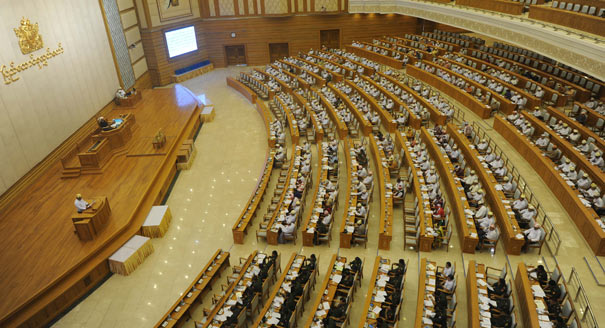What: Myanmar’s general election
Seats on the Line:
Voters will select representatives for the national parliament’s upper and lower houses as well as for the 14 regions/states.
The lower house has 330 directly elected seats and 110 military appointees, for a total of 440 seats. The upper house includes 12 members of parliament elected from each state/region (for a total of 168) and 56 military appointees for a total of 224 seats.
When: November 8, 2015 (see timeline for more)

Number of Parties Registered: 83
How It Works:
Under the current setup, the winner in each election will be selected using the first-past-the-post system. But parliament recently approved a bill to introduce proportional representation in the upper house elections that is pending review by the Constitutional Tribunal.
The country’s election commission announced it will invite domestic and international monitors to observe the elections.
Because votes will be counted manually, it could take up to two weeks after Election Day for the final results to be announced.
Choosing a President and Cabinet:
After the vote, a Presidential Electoral College (PEC) will be formed from three groups—the lower and upper houses of the new parliament and the defense services. Each group will nominate one presidential candidate.
All members of the PEC will vote for the candidate of their choice. The candidate with the majority of votes becomes president, while the others become vice presidents.
Cabinet ministers will be chosen from among elected members of parliament, who must then vacate their parliamentary seats. These vacant seats will be filled through a by-election.
Presidential Candidates:
Aung San Suu Kyi—the country’s most popular politician—cannot be nominated for the presidency because of a constitutional provision that prevents anyone whose spouse or children are foreign nationals from holding the office of president or vice president (her children are British).
The front-runners are:
- Thein Sein, the incumbent president
- Thura Shwe Mann, the speaker of the lower house
- Min Aung Hlaing, the commander in chief of the armed forces who is due to retire soon
Last Updated: July 23, 2015


-2.png)


